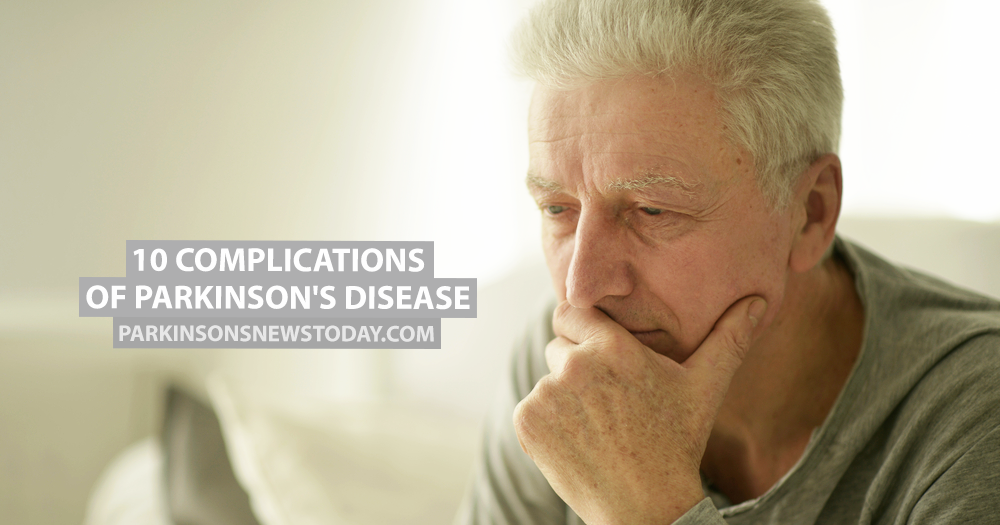10 Complications of Parkinson’s Disease

As well as the symptoms usually associated with Parkinson’s disease like rigidity and tremors, those living with the condition may also experience other complications. According to the Mayo Clinic, these complications may include:
Cognitive Problems
Cognitive problems tend to occur in the later stages of the disease, where thinking and reasoning may become impaired. Currently, there is no medication available to treat this complication.
Depression and Anxiety
It’s common for people living with Parkinson’s disease to suffer from emotional changes such as depression or anxiety. Speak to your doctor if you’re finding it hard to cope emotionally as medication or counseling may help.
Difficulty in Swallowing
As Parkinson’s disease progresses, some patients may find they experience swallowing difficulties. This may also lead to an excess of saliva in the mouth and drooling.
MORE: The five stages of Parkinson’s disease.
Sleep Disorders
Sleep disorders are extremely common in people with Parkinson’s disease. Common complaints include difficulty falling asleep, waking to go to the bathroom, restless leg syndrome, REM sleep behavior disorder and sleep apnea.
Bladder and Bowel Problems
Difficulty in controlling urination or starting urination is a common complication of Parkinson’s disease. In addition, many may find that they suffer from constipation.
Sudden Changes in Blood Pressure
Dizziness when standing up is due to a sudden drop in blood pressure.
MORE: How to manage “freezing” in Parkinson’s disease
Loss of Sense of Smell
Many Parkinson’s disease patients report a decline in their sense of smell or being unable to distinguish between different smells.
Fatigue
Fatigue can affect many Parkinson’s disease patients, often without any known cause.
Pain
Pain experienced by Parkinson’s disease patients can be in specific areas or a general pain felt all over the body.
Lower Sex Drive
A lower sex drive or sexual dysfunction is a complication of Parkinson’s disease for many people and may be due to other symptoms such as fatigue, pain or depression.
MORE: How does Parkinson’s disease affect the brain?
Parkinson’s News Today is strictly a news and information website about the disease. It does not provide medical advice, diagnosis or treatment. This content is not intended to be a substitute for professional medical advice, diagnosis, or treatment. Always seek the advice of your physician or another qualified health provider with any questions you may have regarding a medical condition. Never disregard professional medical advice or delay in seeking it because of something you have read on this website.






